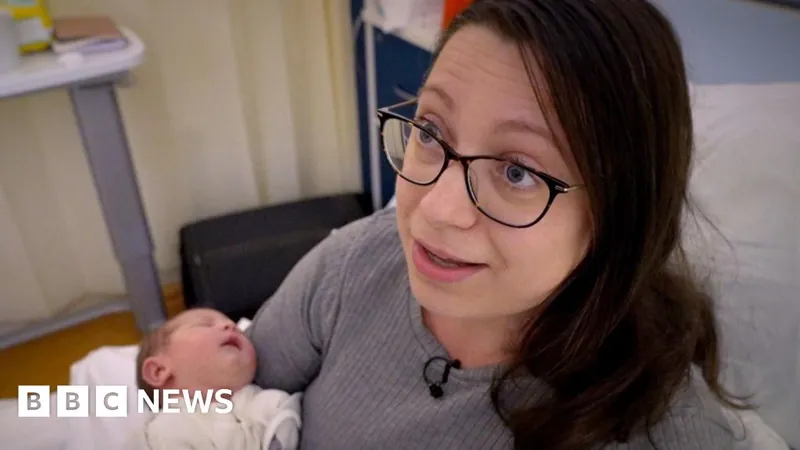
Revolutionizing Newborn Care: Over 200 Rare Diseases Screened in Groundbreaking NHS Initiative
2024-10-03
Revolutionizing Newborn Care: Over 200 Rare Diseases Screened in Groundbreaking NHS Initiative
In a groundbreaking move for pediatric health, the NHS is set to analyze the complete genetic code of up to 100,000 newborns across England, aiming to accelerate the identification and treatment of over 200 rare diseases. This revolutionary initiative marks a significant shift from the existing heel-prick blood test, which currently screens for just nine serious conditions, including cystic fibrosis.
The pioneering study, spearheaded by Genomics England, will involve taking blood samples from newborns' umbilical cords. This method will facilitate the detection of many more genetic disorders like hemophilia and spinal muscular atrophy, which traditionally remain undiagnosed until symptoms develop. Hundreds of samples have already been collected from infants born at 13 hospitals, with plans to expand to around 40 hospitals across the country.
Despite there being approximately 7,000 single-gene disorders, this ambitious program will focus on those conditions that manifest in early childhood and for which effective treatments exist. Early intervention could potentially lead to cures, fundamentally changing the lives of affected children.
At Birmingham Women’s Hospital, which is currently conducting the screening, new mom Dominika Nanus expressed her enthusiasm: “It was a no-brainer to participate in this study. Not only will my daughter Emilia benefit, but she will also contribute to vital research.” Another participant, Jemma Jordan, who had her son Hugo just days earlier, echoed this sentiment, emphasizing the importance of being informed about potential health issues from the very start.
Dr. Ellen Thomas, chief medical officer at NHS England, explained that the diseases under investigation lead to “substantial health problems early in childhood.” She highlighted the transformative impact that timely treatments and interventions can have on young lives.
The current diagnostic process for genetic disorders can take years, resulting in late detection often after severe illness strikes. Lucy White’s son, Joshua, was diagnosed with early juvenile Metachromatic Leukodystrophy (MLD) only after his health significantly declined. She lamented that had his condition been identified at birth, he might have qualified for a life-saving clinical trial available on the NHS.
Now a full-time caregiver, Lucy emphasized the urgency for other parents to enroll their children in screening: “Do not hesitate. If you can save your child's life, that is more important than anything in this world.”
Once children reach 16, they will be asked if they wish to continue participating in the research, which could encompass screening for conditions that develop during adulthood, such as certain cancers or heart disease. This raises important ethical debates regarding how much health information should be disclosed about future risks.
Dr. Rich Scott, CEO of Genomics England, described this initiative as “a pivotal moment” in healthcare, with plans to gather evidence that could inform the integration of genomic newborn screening into standard practice. NHS England’s chief executive Amanda Pritchard reiterated the potential of this screening program to provide thousands of children with timely access to necessary treatments, giving them the best possible start in life.
Stay tuned! This could be the first step towards a future where no child faces the devastation of undiagnosed genetic disorders. Will your newborn benefit from this cutting-edge screening?





 Brasil (PT)
Brasil (PT)
 Canada (EN)
Canada (EN)
 Chile (ES)
Chile (ES)
 España (ES)
España (ES)
 France (FR)
France (FR)
 Hong Kong (EN)
Hong Kong (EN)
 Italia (IT)
Italia (IT)
 日本 (JA)
日本 (JA)
 Magyarország (HU)
Magyarország (HU)
 Norge (NO)
Norge (NO)
 Polska (PL)
Polska (PL)
 Schweiz (DE)
Schweiz (DE)
 Singapore (EN)
Singapore (EN)
 Sverige (SV)
Sverige (SV)
 Suomi (FI)
Suomi (FI)
 Türkiye (TR)
Türkiye (TR)